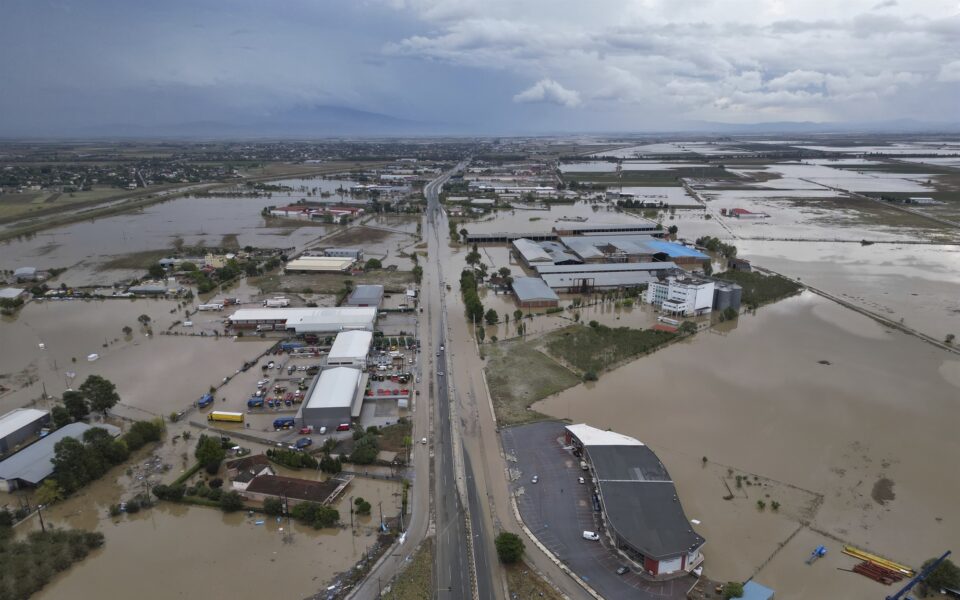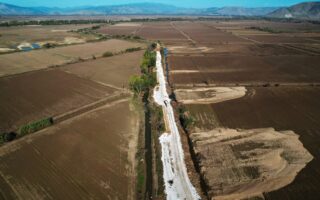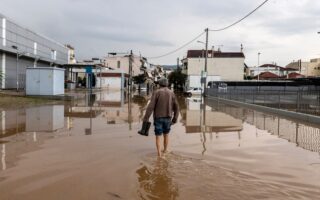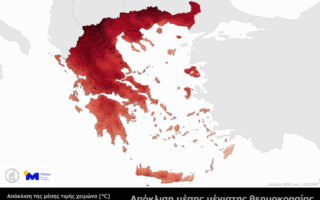Southern Europe most vulnerable to climate change impacts, expert study warns

Southern Europe is already hurting and will hurt even more in the years to come from rising temperature, less rainfall, coastal erosion and floods, the European Environment Agency (EEA) warns in its first European Climate Risk Assessment report published earlier this month.
Calling for immediate action at a bloc-wide level, the report stresses that mitigating measures have already become imperative in areas like protecting coastlines and agricultural production, reducing the impact of heatwaves on the general population, improving flood prevention and management, and bolstering European solidarity mechanisms.
“Southern Europe, low-lying coastal regions and the EU’s outermost regions are hotspot regions for climate risks,” the report warns. “Southern Europe is particularly affected by heat and prolonged drought. Three out of the eight risks in the highest urgency category are evaluated with this high-urgency score because of their high severity in Southern European climate risk assessment,” it adds.
Bringing together findings from all the recent scientific research and publications, the report identifies five areas where climate change will have the biggest impact and puts forward specific proposals for those cases where significant action is needed now. These are the following:
Ecosystems
The report draws particular attention to coastal ecosystems, warning about the impact of rising sea levels and also the effects of overfishing and pollution on marine life.
“The EU and its member-states should implement existing policies to maintain and restore the resilience of ecosystems, particularly by strengthening protection and minimizing anthropogenic pressures. This applies especially to marine and coastal ecosystems,” says the report.
“Member-states should strengthen maritime spatial planning and implement coastal management plans with a focus on protecting essential coastal ecosystems under climate change,” it adds.
These observations are especially pertinent right now as Greece has been addressing similar issues within the framework of an Economy Ministry bill on the exploitation of beaches and the seashore. In fact, a group of environmental organizations have lodged a formal demand for the setback zone to be increased to 100 meters from the shoreline (meaning that no installations/constructions are allowed inside this limit). The demand, which is in perfect accordance with the EEA’s recommendations, has been left out of the ongoing discussion about the new legislation, however, as short-term political gains are given precedence.
Food production
‘Member-states should strengthen maritime spatial planning and implement coastal management plans with a focus on protecting essential coastal ecosystems’
The destruction of crops due to extended drought and extreme temperatures is already a problem in Europe’s South, the report notes, warning of the looming threat of “mega-droughts” and their impact on a much wider area. Such prolonged periods without rain can, according to the report, lead to “water and food insecurity, disruptions of critical infrastructure, and threats to financial markets and stability.” The report adds that the risk of these droughts becoming more severe needs to be factored into the Common Agricultural Policy (CAP) strategic plans of member-states, by “supporting drought-resilient crops or varieties and favoring less water-intensive crops.” It also stresses the need to “raise awareness of risks to food production that is water-intensive or depends heavily on imported fodder.”
The report also notes that EU policies linked to the bloc’s food security, such as the common policies on agriculture and fishing, have not taken the effects of climate change into proper consideration.
In a further recommendation, the EEA argues that “a partial shift from animal-based to plant-based food, as foreseen under the Farm to Fork Strategy and in line with international dietary guidelines, can reduce freshwater consumption for food production, as well as dependency from feed sourced outside Europe.”
Infrastructure
Climate model projections need to be incorporated into the Eurocodes (the standards guiding the structural design of buildings and civil engineering works), the report states, noting that these regulations are currently based on historical climate data. When it comes to the design of critical infrastructure in particular, the worst-case projections must be considered.
“The EU and its member-states urgently need greater clarity about the location and characteristics of critical infrastructure, and its exposure and vulnerability to climatic hazards. This entails both stress tests to identify weaknesses and regulatory oversight to monitor where progress is lacking,” the report advises.
As for dealing with heatwaves, the report notes that EU member-states need to develop low-carbon approaches for cooling buildings, both passively and actively, and facilitating their wide implementation.
Health
Given the direct and indirect impact of climate change on public health and the fact that health policy is determined at the member-state level, the authors of the report stress the need to bolster European civil protection mechanisms. They also underscore the matter of spatial planning and building standards, describing them as “key policy levers to reduce heat-related health risks.”
“These policies have a long decision horizon and need to consider future climate change to prevent lock-ins of unsustainable infrastructure,” the report notes.
The economy
“Many climate impacts can affect the economy and the financial system, from where they can cascade further to other policy areas that may be deprived of financial resources,” the report notes, pointing to the need for comprehensive policies.
It adds that businesses and markets should be given incentives to adapt to the realities of climate change, including through investment in nature-based solutions, which is limited “due to low climate risk awareness and lack of risk data,” while it should also become cheaper to insure homes and businesses against extreme weather.
“Communities with significant flood insurance are in a better position to recover and build back better after a severe flood than those without external support,” the report notes, for example.





